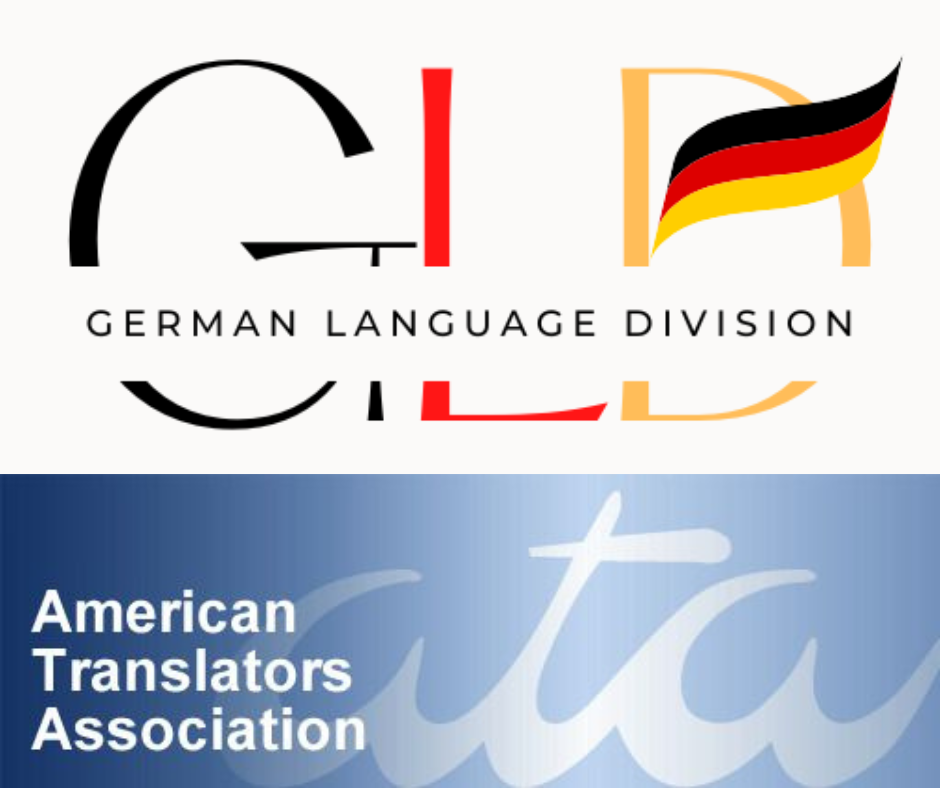ATA’s 58th Annual Conference in Washington, DC, is right around the corner. If you’re going, you’re very likely to see some familiar names in the program. Plenty of our GLD colleagues will be sporting the “Speaker” ribbon on their name badges. Here’s a rundown of GLD members holding sessions in tracks other than German.* For the list of German track session, go here.
ATA sessions presented by GLD members
ATA-1 The ATA Code of Ethics and Professional Practice: What Does It Mean to Me?
Ted Wozniak, CT | Mike Collins | Jutta Diel-Dominique | Odile Legeay | Jill Sommer
(Friday, 11:15am-12:15pm; All Levels; Presented in: English)
ATA members are required to comply with the Association’s code of ethics. Historically, failure to comply had no consequence, as complaints were routinely dismissed. Following revision of the ethics procedures in 2014, this is no longer true. Ethical violations now have consequences. So how do you ensure compliance? What should you do if an ethics violation occurs? How will complaints be handled? Members of ATA’s Ethics Committee will discuss the code, the related commentary, and the ethics policy, highlighting recent changes. The speakers will then take questions from attendees, providing their opinions or interpretation in a particular scenario.
IC-2: Contingency Planning and Crisis Management 101
Jill Sommer
(Thursday, 2:00pm-3:00pm; All Levels; Presented in: English)
What would you do in the event of a crisis? Do you have a backup plan in the event of an email server outage, hard drive failure, power outage, or natural disaster? What about hospitalization? A crisis is a significant unexpected disruptive event that affects an organization’s personnel, facilities, information systems, or critical records. The event could be large or small, such as a natural disaster or human in origin. Smart and diligent contingency planning is an important aspect of crisis management because it ensures that individuals and organizations make the necessary preparations to be ready when trouble strikes.
IC-6: Translators and Agencies: Two Captains, One Boat
Michael Elliff | Gerhard Preisser
(Friday, 11:15am-12:15pm; All Levels; Presented in: English)
Whether new translators find success in their chosen careers depends on their relationship with the agencies for which they work. Agencies look for quality, dependability, flexibility, and good communication skills. Freelancers want their agency clients to be open to questions, willing to share information upfront regarding their expectations, and reliable when it comes to compensation. In this session, a veteran translator and an equally seasoned agency owner will introduce, discuss, and reenact different real-life scenarios to underscore what good communication between both sides is all about.
ST-4: Keeping Up with a Moving Target: Environmental Terminology
Martina Burkert, CT
(Friday, 10:00am-11:00am; All Levels; Presented in: English)
From climate change to heavy metals, the environmental field offers translators many areas of specialization. Decades of environmental awareness have fundamentally changed technologies and sparked the formation of governmental agencies and environmental organizations worldwide. While translators need to adhere to standardized language when translating some globally harmonized regulations, much of the environmental terminology is under constant development and definitions are often not consistent among stakeholders. This session will outline different categories of environmental concerns, address ambiguities in relation to important environmental terms, and provide resources that will help translators improve their proficiency in specific environmental fields.
ST-5: A Drop in the Ocean? Strategies and Technologies to Conserve Water for Current and Future Generations
Abigail Dahlberg
(Friday, 11:15am-12:15pm; All Levels; Presented in: English)
Water is essential for life. As climate change and demographic factors (e.g., population growth and migration) place an even greater strain on the availability of this resource, there’s a growing awareness that water is a precious commodity. This session will explore the integrated strategies that have been developed to conserve water and resolve conflicts over its use in the developing world. It will also touch on water-saving technologies, ranging from low-flush toilets and drip irrigation to wastewater recycling systems.
ST-7: An Introduction to Artificial Intelligence, Machine Learning, and Neural Networks
Carola Berger, CT
(Friday, 3:30pm-4:30pm; All Levels; Presented in: English)
From spam filters to stock trading bots, the applications of artificial intelligence are already omnipresent. This poses important questions such as: Will my autonomous vacuum cleaner go on a rampage and eat the hamster? Do neural networks think like brains? What are the chances of a robot uprising? This session will address these questions and provide an introduction to artificial intelligence, which is impacting all our lives, perhaps more than most people are aware. However, this session will not discuss machine translation and related topics. No knowledge of computer science or advanced mathematics is required to attend.
T-10: Outside the Box: Everyday Continuing Professional Development for Translators
Jeanette Brickner
(Saturday, 2:00pm-3:00pm; All Levels; Presented in: English)
Perfecting and refining our skills as translators does not have to be a chore. In fact, the very nature of our work means that we’re surrounded by opportunities to do so every day! This session will explore some eye-opening approaches toward sharpening our translation skills through activities that many, if not most, of us already do in our daily lives. We will also discuss ideas and brainstorm as a group. Attendees will leave this session with new perspectives and strategies on how they can grow their translation skills directly through everyday activities that they already do and enjoy.
*Please note that this is very likely not an exhaustive list. The presenters and sessions listed above were collected after a call was put out on the GLD listserv. If you’re a GLD member and not yet on the listserv, then you’re missing out on one of the benefits of being a GLD member. Find out how to join here.

